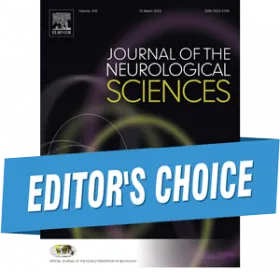
Image: iStockphoto.com/RossHelen
Authors: Andrew Geronimo, Zachary Simmons
Editor's Choice
Journal of the Neurological Sciences. REVIEW ARTICLE| VOLUME 4459, 122971, APRIL 15, 2024
DOI: https://doi.org/10.1016/j.jns.2024.122971
Highlights
-
Remote monitoring of pulmonary function resulted in nearly 2 months advance notice of need for NIV
-
A subset of study participants was prescribed NIV as a result of remote testing.
-
Greatest clinical value occurred in those with low baseline pulmonary function and rapid rates of respiratory decline.
-
Remote FVC more closely replicates standard tests than remote MIP, which had increased variability and bias.
The traditional ALS multidisciplinary clinical practice of quarterly respiratory assessment may leave some individuals in danger of developing untreated respiratory insufficiency between visits or beginning non-invasive ventilation (NIV) later than would be optimal. Remote, or home-based, pulmonary function testing (rPFT) allows patients with ALS to perform regular respiratory testing at more frequent intervals in the home.
The aim of this study was to determine the clinical benefit of weekly rPFT compared to standard, quarterly in-clinic respiratory assessments: the number of individuals with earlier identification of NIV need, the magnitude of this advance notice, and the individual factors predicting benefit. Participants with ALS (n = 39) completed rPFT training via telemedicine and then completed one year of weekly self-guided assessments in the home. Over this period, 17 individuals exhibited remotely-measured FVC dropping below 50% of predicted, the value often used for recommendation of NIV initiation.
In 13 individuals with clinical detection of this event, the median and range of advance notice of need for NIV was 53 (−61–294) days. Prescription of NIV occurred for 21 individuals on the study, six of whom began NIV as a result of remote testing, prior to indication of need as determined by in-person assessments.
Weekly home assessments appeared to be of greatest clinical value in a subset of patients with low baseline respiratory test values and rapid respiratory decline. This has potential implications for clinical management of ALS as well as the conduct of clinical trials that rely on respiratory endpoints.








